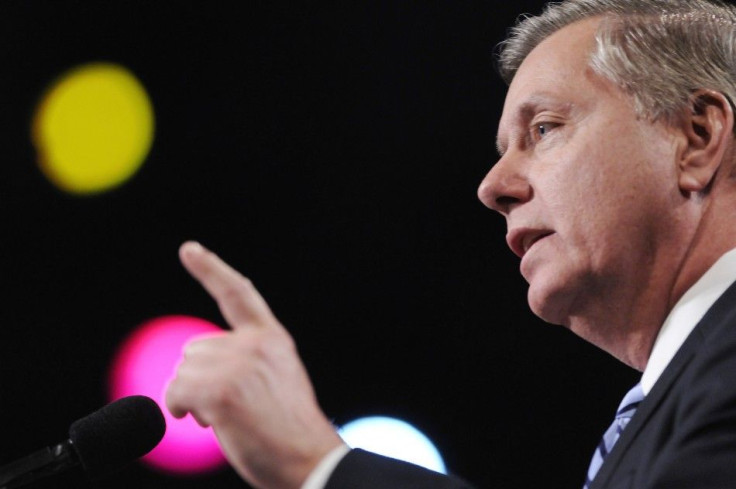Deficit Talks Thaw As Another Republican Backs Revenue Increase

A central sticking point in negotations over a deficit reduction compromise has been increasing revenue: President Barack Obama has said emphatically that spending cuts must be offset by measures to generate more tax dollars, while Republicans have dismissed such a measure as being tantamount to a tax hike.
But there seems to be progress. Last week the Senate voted by a wide margin to repeal ethanol subsidies, a mostly symbolic move that showed Republicans were willing to consider eliminating tax breaks as a weapon to reduce the deficit. Sen. Lindsey Graham (R-SC), appearing on Meet the Press this Sunday, reiterated that position.
No one on the Republican side is going to vote to raise taxes, but I think many of us would look at flattening the tax code, do away with deductions and exemptions and take that revenue to help pay off the debt, Graham said.
Sen. Tom Coburn (R-OK) has also publicly backed revenue increases, telling CNBC last month that shrinking the deficit can't be accomplished only by eliminating large sections and duplicate spending and waste. We can do a large portion of it, but there has to be some revenue component to that, and anybody that says that's not the case, I think they're just wrong and they're not thinking about the long-term health of our country.
The talks over a deficit deal are designed to hammer out a package that would satisfy Republicans enough to win their support for an increase in the debt limit. Party leaders are seeking $2 trillion in cuts -- the debt limit would likely need to rise by about that amount -- and Vice President Joe Biden, who has been leading the talks, has agreed on that target.
Biden said last week that the negotations are entering a critical phase in which both sides will need to make difficult concessions.
© Copyright IBTimes 2025. All rights reserved.





















